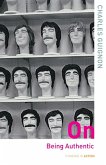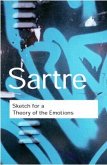Franz Brentano is one of the founding fathers of twentieth century philosophy, celebrated for introducing the concept of intentionality to philosophy as well as making significant contributions to ethics and logic. His work exerted great influence on major philosophers such as Edmund Husserl, but also philosophers travelling in the opposite direction, such Gottlob Frege. He counted Sigmund Freud amongst his students and Freud expressed great admiration for his teacher in several letters.
Psychology from an Empirical Standpoint is Brentano's most important and brilliant work. It helped to establish psychology as a scientific discipline, but did so in a highly original and distinctive manner by arguing for a form of introspectionism. Brentano argued that consciousness is always unified and that the hallmark of the mind is that one's thoughts are always directed towards something - his famous theory of 'intentionality' - arguments that have deep implications not just for philosophy but psychology, cognitive science and consciousness studies.
With a new foreword by Tim Crane.
Psychology from an Empirical Standpoint is Brentano's most important and brilliant work. It helped to establish psychology as a scientific discipline, but did so in a highly original and distinctive manner by arguing for a form of introspectionism. Brentano argued that consciousness is always unified and that the hallmark of the mind is that one's thoughts are always directed towards something - his famous theory of 'intentionality' - arguments that have deep implications not just for philosophy but psychology, cognitive science and consciousness studies.
With a new foreword by Tim Crane.








